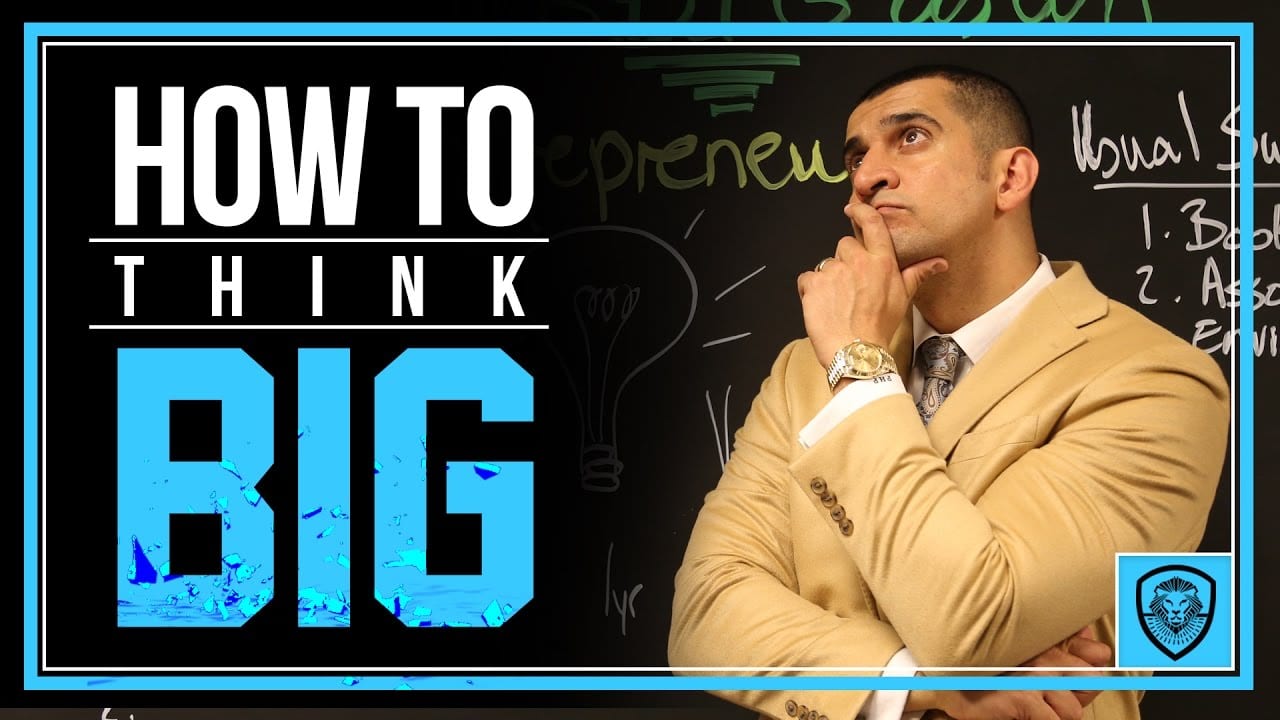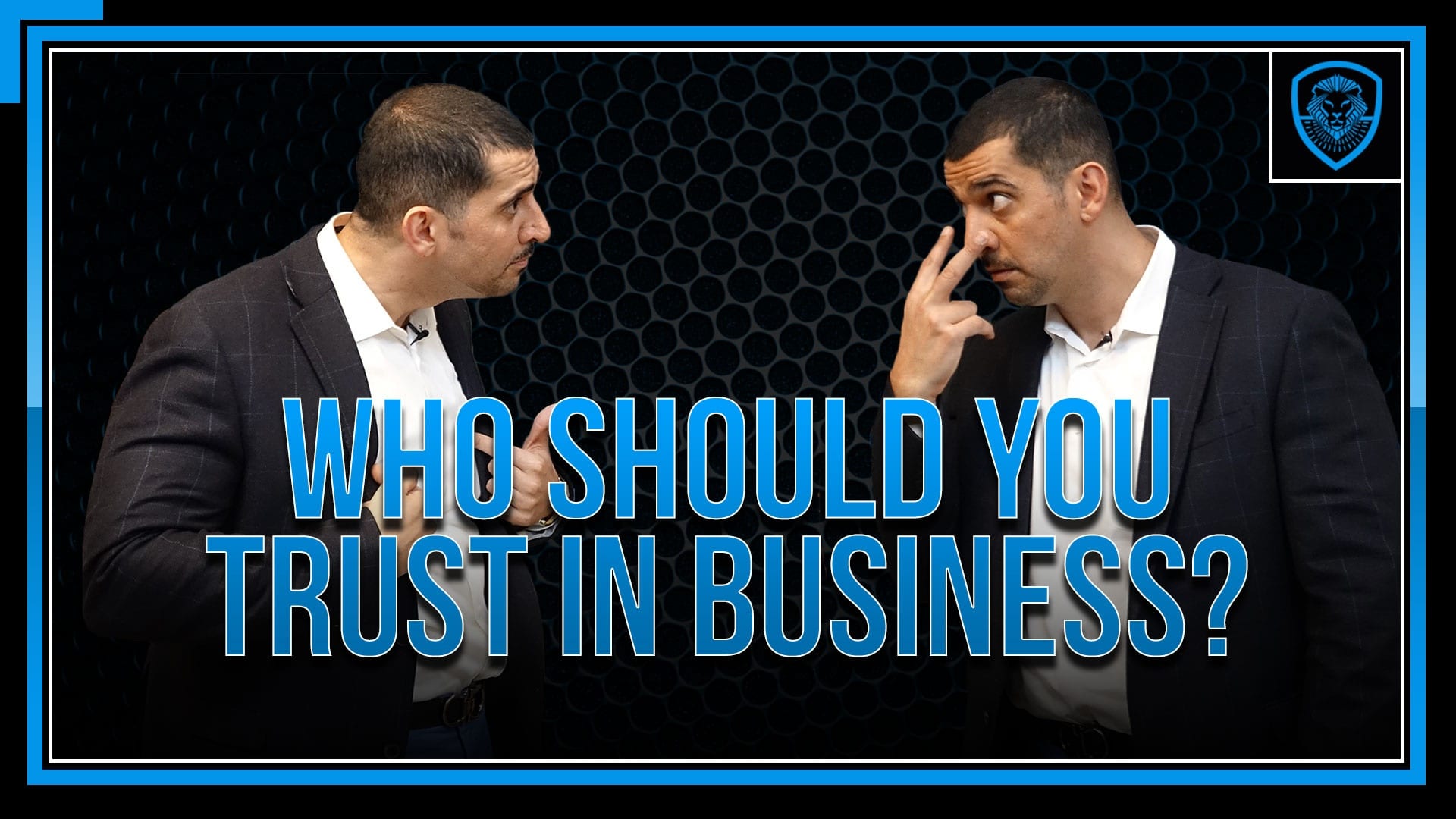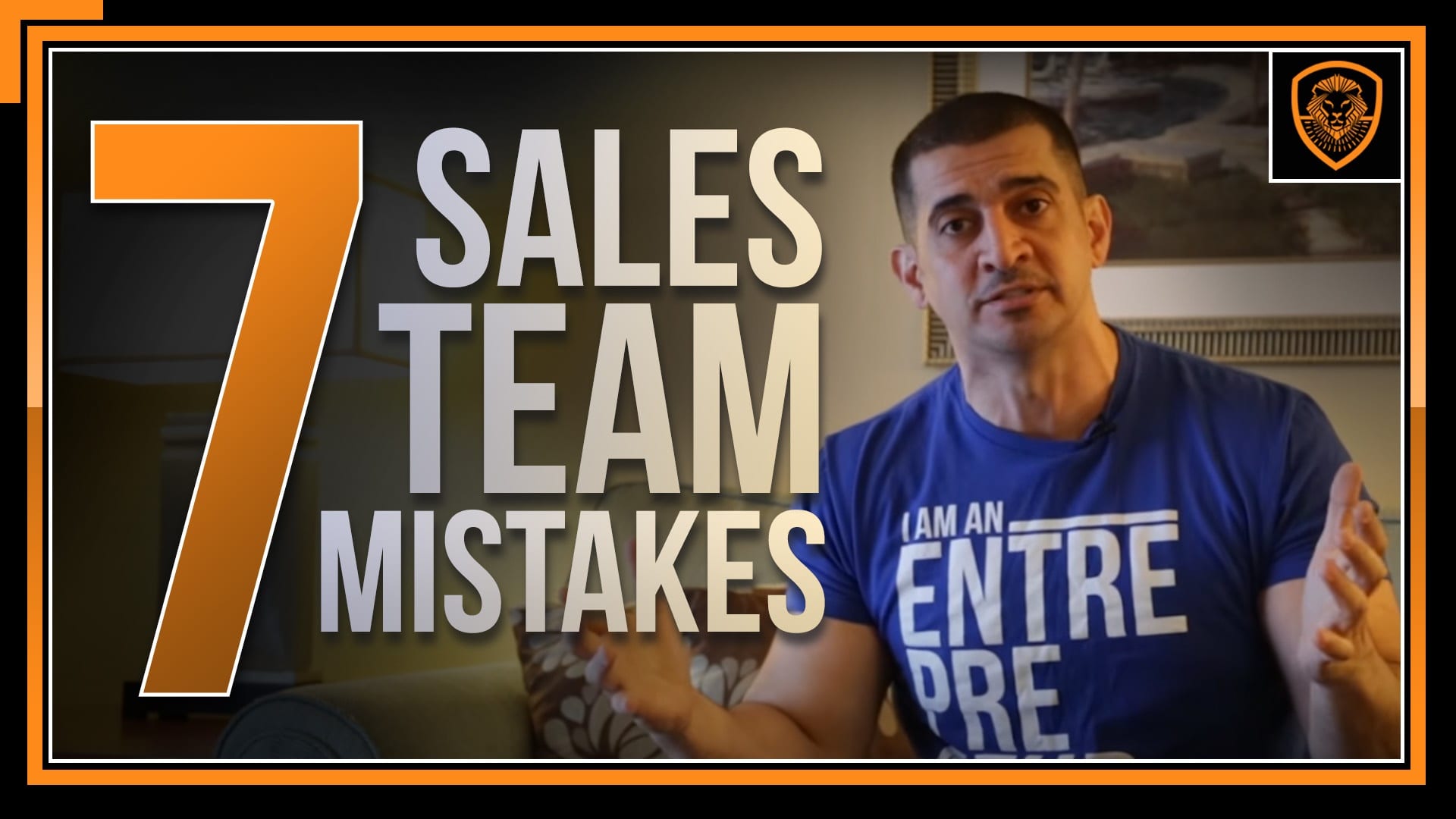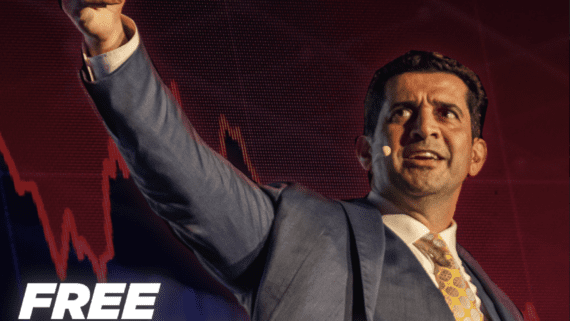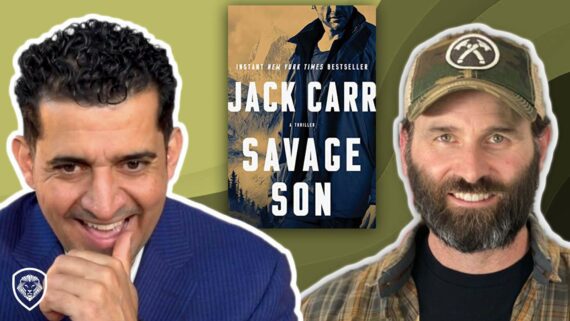I believe today’s the easiest time EVER in the history of mankind to think big as an entrepreneur. You’ll find out why I say that by the end of this video and article. I’m going to cover 16 things you can implement to start you thinking bigger than you’ve ever thought before.
Think about what it would have been like to create the pyramids in Egypt without cranes. It would be difficult to think big like that. Some would even say doing it was impossible. Or imagine how impossible it would seem to invent a machine that weighs tons, that can carry hundreds of people 4,000 miles through the air. Imagine what it would be like to tell potential passengers that it wouldn’t crash, and they’d be safe. Think about what it must have been like for Christopher Columbus to get on a wooden boat and set sail for a land he had never seen, not knowing what he’d encounter along the way. Imagine landing on the moon for the first time, when no one had ever done it before.
All of these things would have seemed impossible. Compared to these things, being able to think big as an entrepreneur is a piece of cake.
16 Ways to Think Big as an Entrepreneur
When people bring up thinking big, there are usual suspects you typically hear about:
- Books
- Associations
- Environment
People say, “You have to read the right books, have the right associations, and have the right environment.
These are the usual suspects, and what I’m going to cover today doesn’t discount these things. You do need to do those things. But I’m going to cover things you don’t typically hear about, and then I’ll give you a plan at the end of what to do.
Okay, so let's get right into how to think big as an entrepreneur.
#1: Math
One of the things is that I love doing is looking at everything on thinking big from the standpoint of math. Math has a lot to do with thinking big.
Here’s an example. I used to ask, what number comes after three? So if you can make three dollars, do you think you could make four dollars? Everyone would say, “Of course!” Okay, if you could make $100 could you make $200 dollars? Of course! How about $1,000 increased to $2,000? Of course. If you could make ten grand a month, could you make 11 grand a month? Yes, of course you can.
So where does this stop? Never. It only stops when you are no longer applying math to thinking big. See, to me, thinking big is purely math. No number is an end number. If I ask you right now what's the biggest number in the world, you can't think about a number. Because there isn't a number that's the biggest number in the world. A billion times billion times billion is still a number that's bigger if you multiply it by another billion.
Becoming a Billionaire
Becoming a billionaire seemed impossible until someone became a billionaire. Today, Elon Musk could be the first guy that could potentially be a trillionnaire if he continues at his current pace. This is going to happen.
But you need to take these big numbers that seem impossible, and know that they’re just numbers. There’s no reason to be afraid of numbers. It’s purely math!
The difference between a small thinker and a big thinker is multiplication. The small thinker adds, and the big thinker multiplies. If someone adds two plus two plus two plus two plus two, you get ten. But if someone multiples two times two times two times two times two, you end up with 32.
So start off with whatever you think seems absolutely big, beyond what you can do, and bring it down to a number. Make it a smaller bite, and then know you can get a bigger bite if you keep multiplying.
#2: Small Victories
Whatever big-thinking idea I have, I need confidence to think bigger. And confidence happens with smaller victories. If you can have small victories in a game, or in business, you eventually start believing you can have the bigger victories. But a bigger victory doesn't all of a sudden happen. A big victory is a combination of many, many small victories that didn't stop. They happened one after another. So when you have one victory, boom, go get another one, and another one, and another one.
#3: Test it With the People Around You
Another thing to do when you have a big idea is to test it on other people. Say you have a goal in your business, you want to do something big that's never been done in your business before. Test it with five people, and see if you can convince one of them to believe you. You can do this with five team members, family, friends, etc. Tell them your idea, and see how they respond. That will tell you a lot.
I remember when I had nothing going on. I was broke, $49K in debt, driving a Ford Focus. I intentionally went into Ferrari dealerships and walked around. My goal was to convince the salesman that I was a qualified buyer. If the salesman came and talked to me and acted like he believed I could buy it, I knew that maybe one day I could buy a Ferrari.
You can also do this with real estate. Go to a showing for three million dollar homes. See how the agent responds. If you can convince them you’re qualified to buy, it shows you have the potential to one day own a three million dollar home.
#4: Study People
Another one is, study people. When I say "study people," I don't mean studying people in the way where everybody says, "Go study this person, go study that person." Study who that person studies. So, for instance, don't just study Michael Jordan, study who Michael Jordan studies, which is David Thompson. Don't just study David Thompson, study who David Thompson studies. And go deeper in that. Ask why they studied those people. Go deeper and deeper and deeper.
What this does to you is it tells you that the person that you admire now, at one point, had doubts, but they studied people that injected belief in them that they could be the person they are today.
#5: Solve Problems
Many times I’ve said that 100% of the world’s problems are going to be solved by entrepreneurs, because entrepreneurs are problem solvers. They look at something complex, and simplify it. Entrepreneurs can solve health, economic, and educational challenges.
A lot of times the first motivation for somebody who's never been an entrepreneur is to make a lot of money so they can have a bigger house, cars, and other toys. That’s great. There’s nothing wrong with that. But it has to be bigger than that. Know that the world today is counting on you to solve some big, big problems. You need to figure out a way for your business that’s making a lot of money to also have a positive impact on the world.
#6: Imagination
Listen in here for how imagination is linked to thinking big.
#7: Turn Off the Noise
You need to turn off the noise. And I'm talking different types of noise. One is too much time on the social media news feed. I don’t need that. Especially right now, there’s too much political stuff going on. Do you think big thinkers are looking at everything Hillary Clinton and Donald Trump are doing right now? They do get the bullet points in the morning because they need to stay up with current events. But they don’t waste time with conspiracy theories. That’s way too much noise.
Also, turn off the noise of negative friends, small thinkers. Turn off the noise of family members that don’t support what you want to do. Don't even bring up the ideas in front of them. You won’t be able to get away from some of them such as parents and other family members. But if you know if you bring up an idea that they’ll be negative, don’t bring it up in front of them. Turn off the noise. Stop any distractions and negativity.
#8: Test the Capacity of an Idea
The next one is to test the capacity of an idea. Here’s how. Take out a piece of paper and pen, or use a whiteboard and marker. Ask how big something can get. How big is the market for it? For example, how big is the market in New York? Los Angeles? Houston? What if you could sell to that market? Look at taking what you’re doing to a whole new level.
Remember, Mark Zuckerberg wasn't necessarily a big thinker. He was a developer, a brain. The big thinker when it came to Facebook wasn’t Zuckerberg, it was Sean Parker. Zuckerberg felt they had a million dollar idea, and Parker said, “No, this is a billion dollar idea.” He asked questions like:
- What if this is not just colleges and universities?
- What if we go into Canada?
- Could we go into Europe?
- What if. . . what if. . .
Sean Parker was able to see the capacity. And boom! Today there are 1.7 billion users on Facebook.
#9: Let the Idea Loose
Next, let the idea loose. You can’t lock up the Tasmanian Devil. It needs to be let loose. If you let an idea loose, at times it could take you places you never thought you would go. When you let your idea loose, you’ll see it spread.
#10: Curiosity
Next, curiosity can help you think big as an entrepreneur, so ask a lot of questions.
For instance, today I had a call with a very, very big company in my industry. They’re worth a few hundred million dollars and they’re very interested in what we’re doing.
I told them some ideas I have and what I’m thinking of doing. I started questioning some things, because I’m curious. When was asked questions, we got answers. It made us research, so we asked more questions. We wondered what would happen if we did certain things. At one point we got stuck, so we contacted an attorney that charges $1200 an hour and she introduced us to the right person, who gave us the answer. This happened because we were curious and asked the right questions.
#11: Ask, “Why Not Me?”
Listen here for two ways you can answer the question, “Why not me?” and how it can lead to your ability to think big as an entrepreneur.
#12: Cut the Fat
The next one is to cut the fat out of your life. Here’s what I mean by cut the fat. If video games aren’t how you plan to make money, cut the fat. If you have hobbies that take up a lot of time, cut the fat. Do you have multiple boyfriends or girlfriends, or party at the nightclub three times a week, cut the fat! If you have bad habits and vices that no one knows about, cut the fat!
These things hold you back from thinking big, so stop it. They’re not helping you out as much as you think. You know exactly what I’m talking about. I don’t need to explain it to you. Think about it. Right now you’re thinking about what you need to cut. The thing that you’re thinking about? Cut it, right now. It’s holding you back, and it’s not worth it. It won’t give you as much fulfillment as thinking big.
#13: Believers
Next is that you need to be around believers. Part of that is environment, but I’m talking about people that believe in your idea. They believe what you envision could actually happen, that you can pull it off.
#14: Momentum vs. Resistance
Listen in here for my explanation of momentum vs. resistance and why both approaches work.
#15: Look Where No One's Looking
Next, look where no one's looking. I've said this so many times.
When you go to a bar, everyone’s looking at the hottest girl in the club. And everyone knows which one it is. Everyone’s checking her out. And guess who’s around her? Everybody. Do you know what a guy’s odds are with that girl? If there are 500 men in that nightclub, and one of her, it’s one to 500. Do you know what those percentages are? A guy has a .2% chance she’ll say yes to him. Do you want those kinds of odds? You don’t want those kinds of odds.
Instead, go find the eight. The eight only has 30 men looking at her, and you’re one of them. You have a 3% chance, which is much higher.
The same principle applies in business. Go look at places that no one's looking and see who's more interesting. It's not always the sexiest thing on the outside that's the best company to be a part of, or the best industry to be a part of. But if everyone else is going left, sometimes you need to go right. If everybody and their mother is joining an incredible movement, great. Let them go. You go and look at something no one is looking at. That’s where you’ll have massive opportunity.
#16: Forbid Conventional Solutions
Next, to think big as an entrepreneur, deliberately forbid conventional solutions. Stop thinking about the conventional way of doing things.
You have to be to an out of the box thinker. You can’t think about the way that everybody else wants to solve the problem. Drop conventional thinking. Big thinkers look at things in different ways. They stick to things and don’t constantly change all the time. Once something works, they stick to it. Adapt as needed, and make minor adjustments, but no overhauls.
My Challenge to You
So what do you do now? Once you have your plan in place, work backwards. Think big by asking what you see yourself being in business 10 years from now. Put together a 10-year plan. Then five years, three years, one year, then six months and three months.
Then today put a one, two, three plan together: “Today I need to focus on one this, two this, three this. Tie everything to a number. Why? Because for big thinkers, everything comes to down to math. Put your numbers together, start thinking bigger, and the next thing you know, you’ll find that this big thinking stuff isn’t as difficult as you thought.
My challenge to you is to not make this all about you. Make it about a bigger cause. Today more than ever before, the world is depending on you to think big and solve problems.
If you haven’t yet subscribed to Valuetainment, please do. Our next goal is to get to a quarter million subs by June first of next year. So if you haven’t subscribed to our channel, click on the button below to subscribe.

